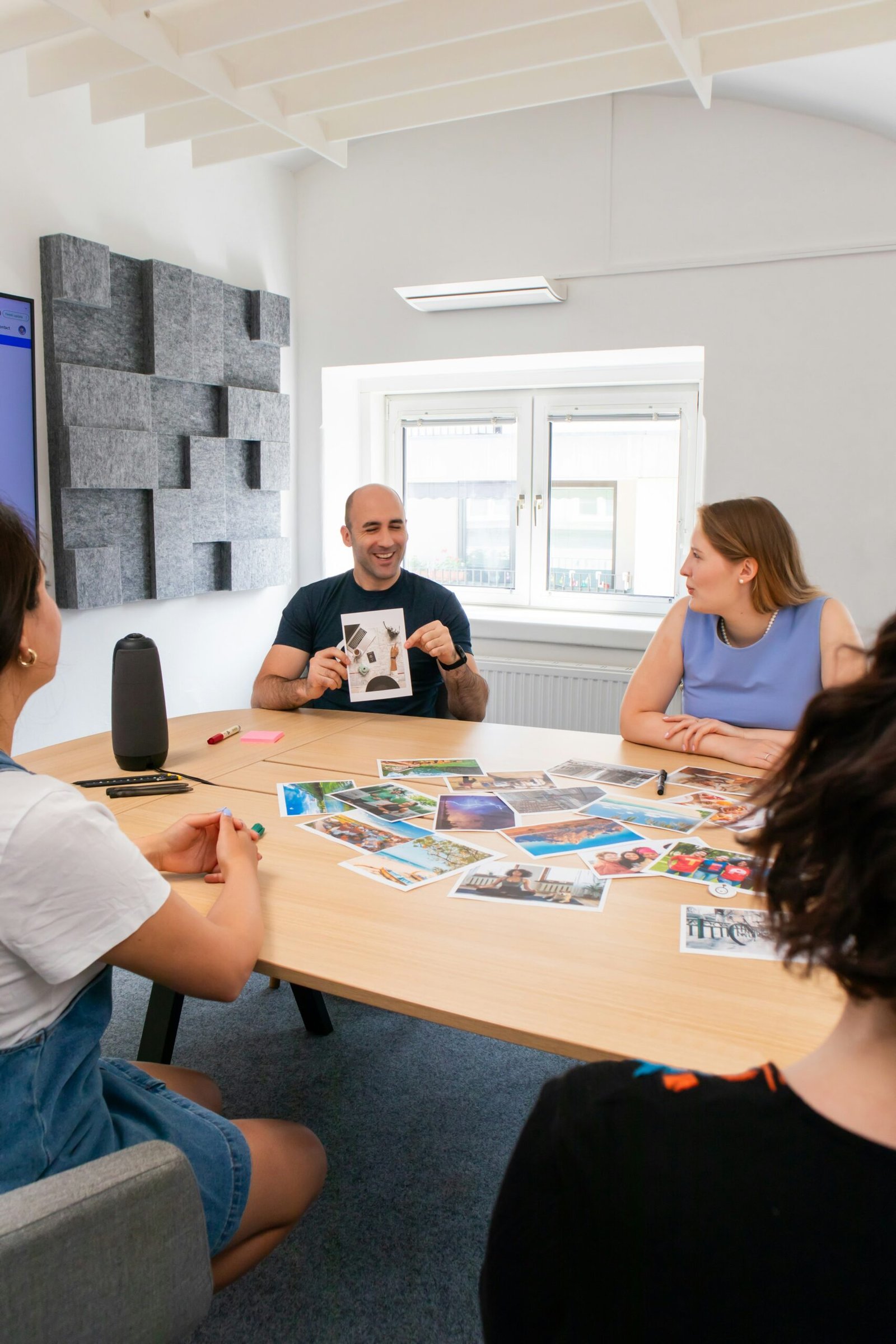Interviewing for a job can be a nerve-wracking experience, but it’s also a crucial step in securing your desired position. Preparation is key, but even the best-prepared candidates can make mistakes that hinder their chances of success. In this blog post, we’ll explore some common mistakes to avoid during an interview, drawing on insights from human resources professionals and industry experts.

1. Lack of Preparation
One of the most common and detrimental mistakes candidates make is not preparing adequately for the interview. This includes researching the company, understanding the job description, and preparing thoughtful questions.
- Research the Company: Learn about the company’s history, mission, values, products, and recent news. Understanding the company’s culture and goals shows that you’re genuinely interested in the role.
- Understand the Job Description: Ensure you understand the key responsibilities and qualifications required for the position. Be ready to discuss how your skills and experiences align with the job.
- Prepare Questions: Having a list of thoughtful questions demonstrates your interest in the role and helps you determine if the company is the right fit for you.
According to SHRM (Society for Human Resource Management), thorough preparation is critical. Candidates who fail to prepare adequately often struggle to articulate their fit for the role, resulting in a missed opportunity to impress the interviewer.
2. Poor First Impressions
First impressions are crucial in an interview setting. From your appearance to your punctuality, every detail counts.
- Dress Appropriately: Choose attire that is suitable for the company’s culture. When in doubt, it’s better to be slightly overdressed than underdressed.
- Arrive on Time: Arriving late for an interview can create a negative impression. Plan your route and aim to arrive at least 10-15 minutes early.
- Be Polite and Professional: Greet everyone you meet with respect and professionalism, from the receptionist to the interviewer. Your behavior is observed from the moment you enter the building.
According to a CareerBuilder survey, 49% of hiring managers said that dressing inappropriately was the most common mistake made by job candidates, emphasizing the importance of making a strong first impression.
3. Inadequate Answers to Questions
Giving incomplete or irrelevant answers to interview questions can significantly undermine your chances of success.
- Be Concise and Relevant: Answer questions clearly and directly. Use the STAR method (Situation, Task, Action, Result) to structure your responses for behavioral questions.
- Provide Specific Examples: When discussing your experience, provide specific examples that demonstrate your skills and achievements. Avoid vague statements that lack substance.
- Stay Positive: Avoid speaking negatively about previous employers or colleagues. Focus on what you learned from past experiences and how they have prepared you for this role.
According to SHRM, effective communication is key. Candidates who can articulate their experiences and skills clearly are more likely to leave a positive impression on the interviewer.
4. Not Asking Questions
An interview is a two-way street. Failing to ask questions can signal a lack of interest or engagement.
- Prepare Thoughtful Questions: Ask questions about the company’s culture, team dynamics, and future projects. This shows that you’re invested in finding a role that fits well with your career goals.
- Clarify Job Expectations: Use the opportunity to understand more about the role’s responsibilities and expectations. This helps you assess if the job is a good match for you.
A study by Robert Half found that 84% of hiring managers consider it important for candidates to ask questions during an interview. Engaging with the interviewer demonstrates your enthusiasm and curiosity about the position.
5. Overemphasis on Salary and Benefits
While compensation is an important aspect of any job, focusing too much on salary and benefits during the initial interview can be off-putting to employers.
- Focus on Fit First: Demonstrate your interest in the role and the company before discussing salary. Highlight how your skills and experiences make you a strong candidate.
- Be Patient: Wait for the interviewer to bring up compensation. If the topic doesn’t come up, it’s appropriate to ask about it later in the hiring process.
According to Glassdoor, candidates who focus excessively on salary during early interviews risk appearing more interested in the paycheck than the job itself. It’s important to balance your interest in compensation with a genuine interest in the role and the company.
6. Poor Body Language
Nonverbal communication plays a significant role in how you’re perceived during an interview. Poor body language can convey disinterest, nervousness, or lack of confidence.
- Maintain Eye Contact: Making eye contact shows that you’re engaged and confident. Avoid staring, but ensure you look at the interviewer when speaking and listening.
- Sit Up Straight: Good posture conveys confidence and attentiveness. Avoid slouching or leaning back in your chair.
- Avoid Fidgeting: Nervous habits like tapping your foot or playing with your hair can be distracting. Practice calming techniques to manage your nerves.
According to a study by the Center for Talent Innovation, 67% of executives believe that poor body language can be a deal-breaker during interviews. Presenting yourself with confidence and professionalism through your body language is essential.
7. Failing to Follow Up
Following up after an interview is a critical step that many candidates overlook. A well-crafted follow-up email can reinforce your interest in the role and leave a positive impression.
- Send a Thank-You Email: Within 24 hours of your interview, send a thank-you email to each person you met with. Express your appreciation for the opportunity and briefly reiterate your interest in the role.
- Personalize Your Message: Reference specific topics discussed during the interview to show that you were engaged and attentive. Highlight how your skills align with the company’s needs.
According to a report by CareerBuilder, 57% of job seekers don’t send thank-you notes after interviews, despite 22% of hiring managers saying they are less likely to hire a candidate who doesn’t send a thank-you note. Taking this small step can set you apart from other candidates.
8. Being Unprepared for Behavioral Questions
Behavioral interview questions are designed to assess how you’ve handled situations in the past, as this is often indicative of how you’ll perform in the future.
- Prepare STAR Responses: Practice using the STAR method to structure your answers. This helps you provide clear, concise, and relevant responses.
- Anticipate Common Questions: Think about common behavioral questions related to teamwork, problem-solving, leadership, and conflict resolution. Prepare examples that showcase your skills in these areas.
A survey by LinkedIn found that 63% of hiring managers prefer candidates who can answer behavioral questions effectively. Being well-prepared for these questions can significantly enhance your interview performance.
9. Being Dishonest
Honesty is paramount during an interview. Misrepresenting your skills, experiences, or qualifications can lead to serious consequences.
- Be Truthful: Always provide accurate information about your background. If you lack a particular skill or experience, acknowledge it and emphasize your willingness to learn.
- Avoid Exaggeration: It’s tempting to embellish your achievements, but honesty is always the best policy. Hiring managers value integrity and transparency.
According to a report by the National Association of Colleges and Employers (NACE), 85% of employers have caught candidates lying on their resumes. Honesty builds trust and sets the foundation for a positive working relationship.
10. Letting Nerves Get the Best of You
It’s natural to feel nervous before an interview, but letting anxiety take over can affect your performance.
- Practice Relaxation Techniques: Deep breathing, visualization, and mindfulness can help calm your nerves before and during the interview.
- Prepare and Practice: The more prepared you are, the more confident you’ll feel. Practice answering questions aloud and conduct mock interviews with a friend or mentor.
- Focus on the Conversation: Shift your focus from your nerves to the conversation. Engage actively with the interviewer and listen carefully to their questions.
According to Harvard Business Review, managing interview anxiety is crucial for effective performance. Confidence and calmness can help you present yourself in the best possible light.
Conclusion
Avoiding common mistakes during an interview requires preparation, awareness, and practice. By researching the company, preparing thoughtful answers and questions, and presenting yourself professionally, you can increase your chances of making a positive impression. Remember to focus on your fit for the role, engage with the interviewer, and follow up with a thank-you note.
Learning from the insights of human resources professionals and industry experts can help you navigate the interview process with confidence. Avoid these common pitfalls, and you’ll be well on your way to securing your desired job. Good luck!






